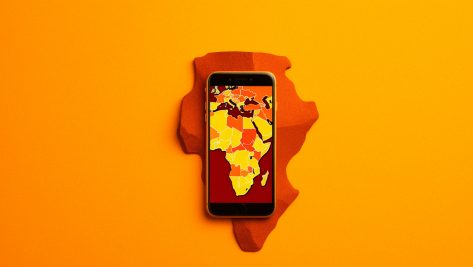The Future of Communication in Africa & Beyond
The communications landscape is evolving rapidly, especially in Africa where cultural, linguistic, and socio-political nuances shape effective engagement strategies. Mimi Kalinda explores how local expertise and cultural affinity are redefining the future of communications.
© IE Insights.
Transcription
So the communications landscape is changing across the world quite dramatically. I think the communications agency of the future is going to be a cross between the traditional agency focusing on public relations, reputation management, thought leadership development, image building and the services that we’ve traditionally provided for decades, but also take into consideration the fact that everything is so digital.
People are communicating behind screens and they really need more engagement. And perhaps a consultancy, clients are really asking for more nuanced insights about markets that are constantly changing, very dynamic and very different across the world. In Africa, it’s even more complicated, I think, than the rest of the world. We find that clients are really asking for: how do we approach the specific market?
How do we speak to a specific audience in a way that is culturally relevant, that takes into consideration sociopolitical nuances, that takes into consideration the economic landscape? For a continent as big as Africa, they want to know: how do we approach communications in 54 different countries that are so different? This application of a blanket approach to an entire continent just simply doesn’t work.
Doing work in Francophone Africa is completely different to Anglophone, Lusophone. I was born in the Congo, in Kinshasa. People who live in Kinshasa speak a different language, have different cultural sensibilities than people who live on the east of the DRC, for example, closer to Rwanda, Uganda, Burundi. So the way that you approach even one country is going to be so varied and so diverse.
So how much more for a whole continent? One of the things that I always tell my clients is, building relationships beyond screens. So you can buy a million followers on any given social media platform, but to really get those followers to actually engage with you in a really meaningful way that incentivizes them to really have conversations that drive specific impact is a completely different ball game.
So first, work with local people. You know, you can’t replace local expertise and I always find that it’s a beautiful marriage to have people who have an international lens on the world and on their businesses and organizations and then apply local knowhow. The second thing is cultural affinity. Being culturally savvy as a brand is extremely important, and I think those two things really stand out to me when it comes to doing business in Africa.
I’ve had clients previously who have dealt with reputational crisis. They were dealing with two specific markets: one South Africa and the other one Nigeria. South Africa tends to be very westernized, quote unquote, in its approach. You know, you can speak to people via email, as you would do in France and London, etc. Of course, Nigeria’s brings a lot to the table in terms of all the modern ways of communicating that we have all over the world.
However, Nigeria is a market that requires a lot more interpersonal and face to face relationship building. And those small interpersonal nuances make a big difference in terms of running a business in Nigeria. If you’re a foreign entity, I think companies and organizations that want to do business in Africa recognize the opportunity. It’s a market that’s also become more open.
I mean, you have companies from all over the world working across the continent. So the cosmopolitan feel and the international feel of Africa has grown as the world has become smaller, primarily driven by this digital and information revolution. Africa is becoming demystified just through access to information, which is fantastic. So people tend to be less scared of what they know. You know, the digital landscape in which we work now has really helped with that.
© IE Insights.








